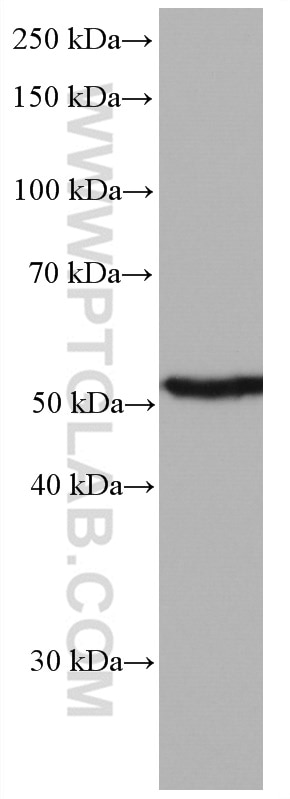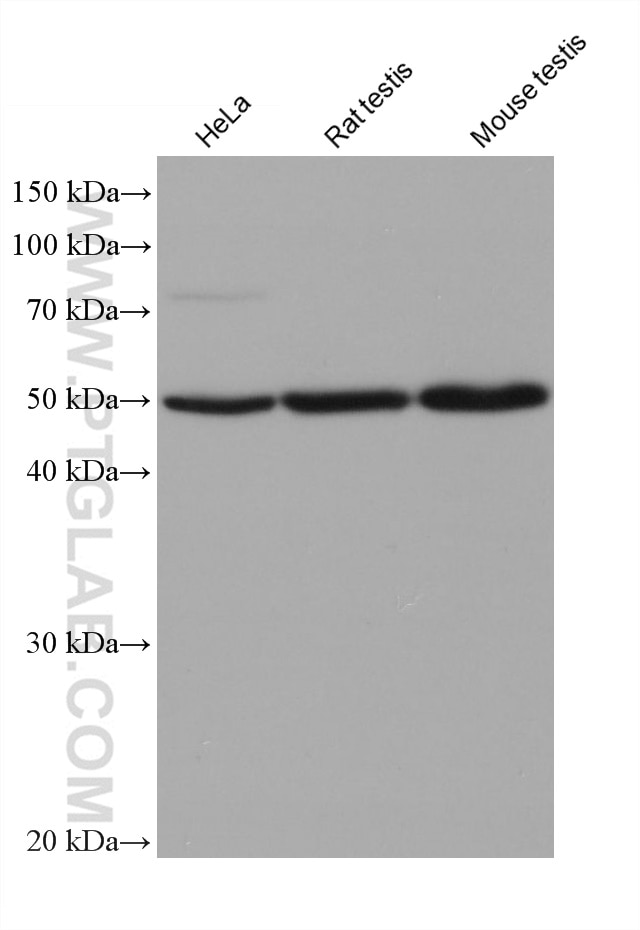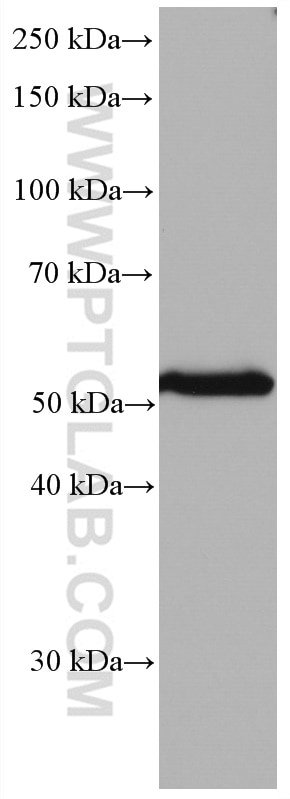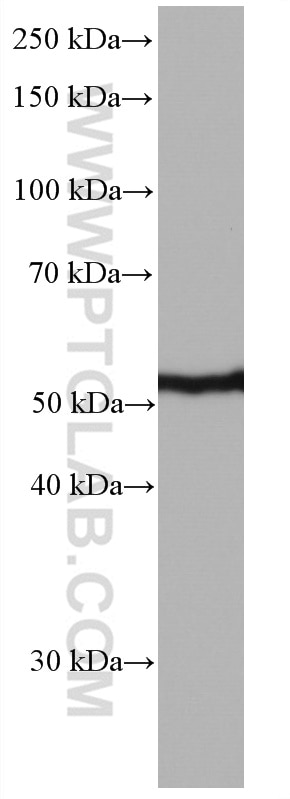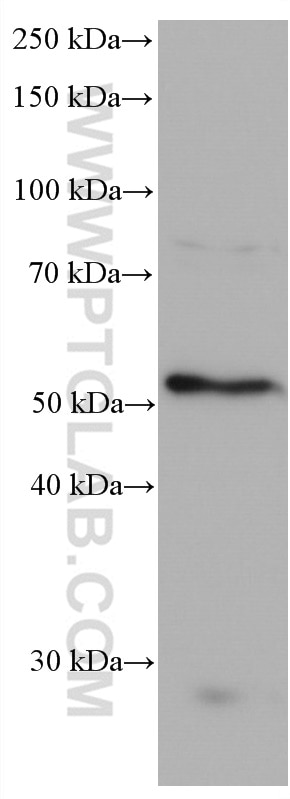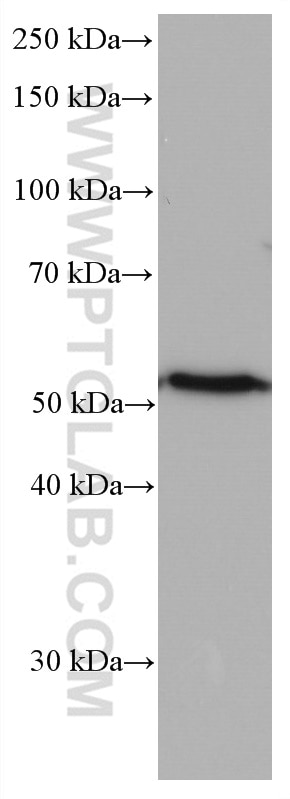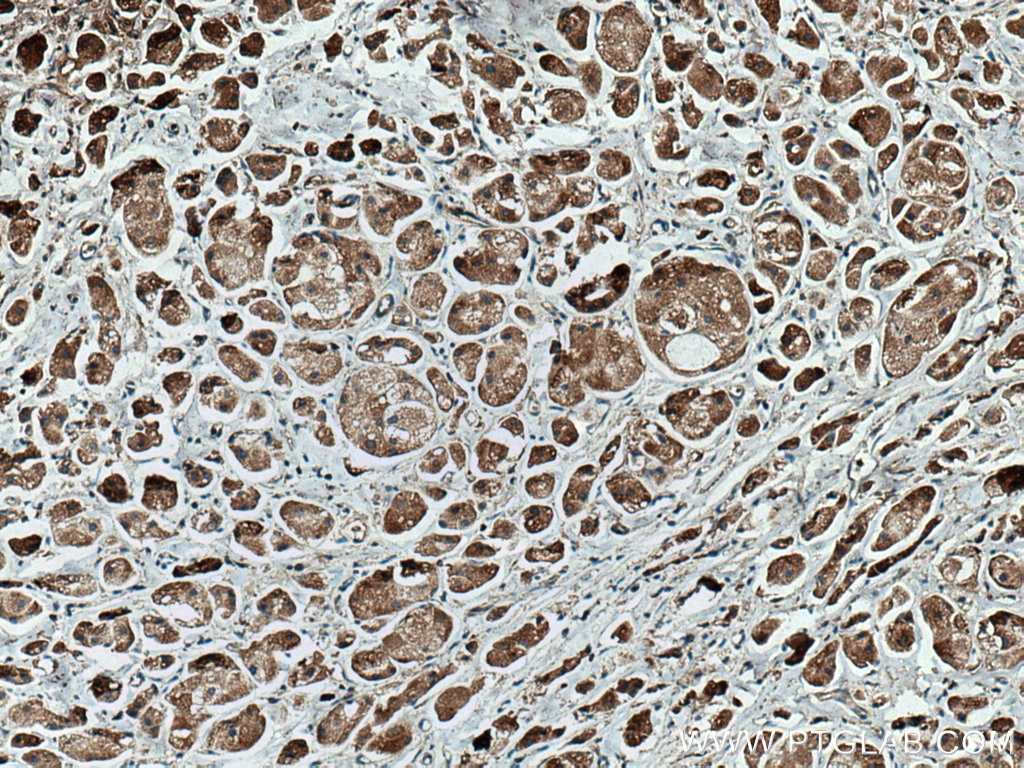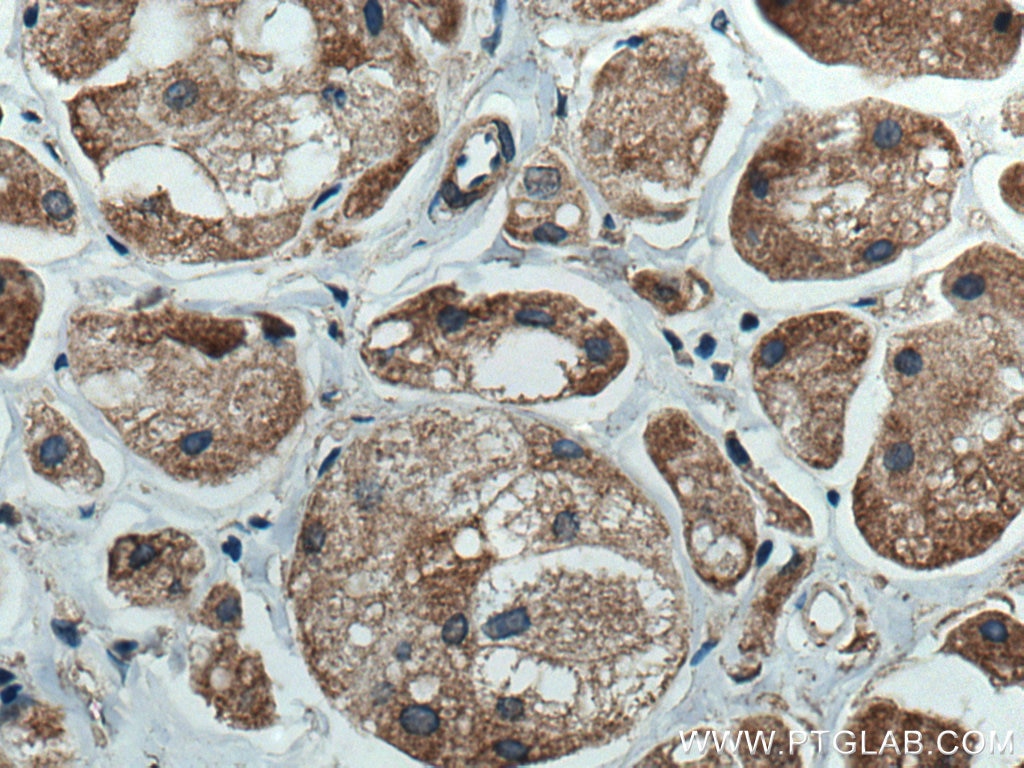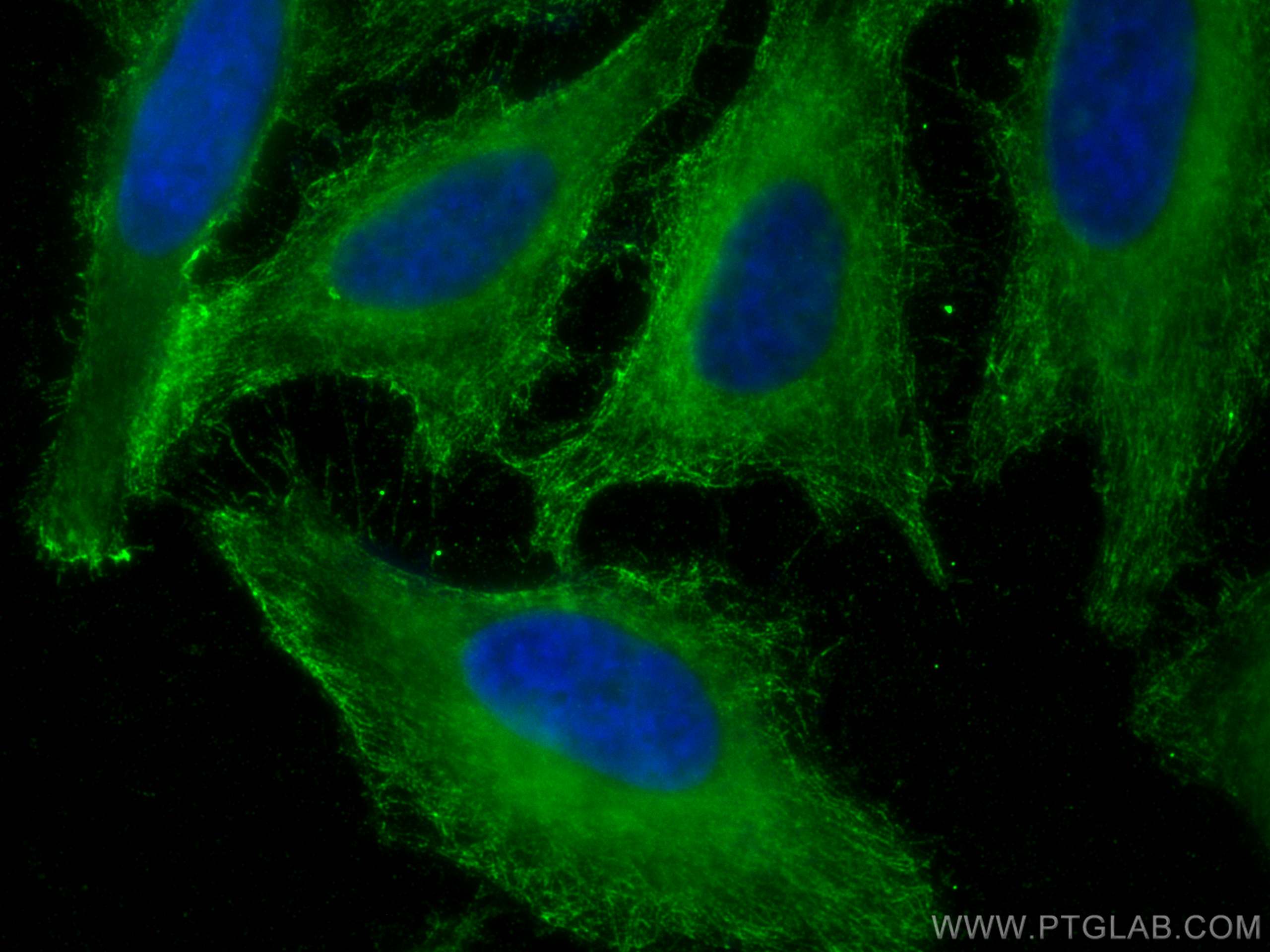- Featured Product
- KD/KO Validated
AURKA Monoklonaler Antikörper
AURKA Monoklonal Antikörper für WB, IHC, IF/ICC, ELISA
Wirt / Isotyp
Maus / IgG3
Getestete Reaktivität
human, Maus, Ratte
Anwendung
WB, IHC, IF/ICC, CoIP, ChIP, ELISA
Konjugation
Unkonjugiert
CloneNo.
1F4B10
Kat-Nr. : 66757-1-Ig
Synonyme
Geprüfte Anwendungen
| Erfolgreiche Detektion in WB | humanes Hodengewebe, HeLa-Zellen, Maushodengewebe, NCCIT-Zellen, Rattenhodengewebe |
| Erfolgreiche Detektion in IHC | humanes Mammakarzinomgewebe Hinweis: Antigendemaskierung mit TE-Puffer pH 9,0 empfohlen. (*) Wahlweise kann die Antigendemaskierung auch mit Citratpuffer pH 6,0 erfolgen. |
| Erfolgreiche Detektion in IF/ICC | HeLa-Zellen |
Empfohlene Verdünnung
| Anwendung | Verdünnung |
|---|---|
| Western Blot (WB) | WB : 1:1000-1:6000 |
| Immunhistochemie (IHC) | IHC : 1:300-1:1200 |
| Immunfluoreszenz (IF)/ICC | IF/ICC : 1:400-1:1600 |
| It is recommended that this reagent should be titrated in each testing system to obtain optimal results. | |
| Sample-dependent, check data in validation data gallery | |
Veröffentlichte Anwendungen
| KD/KO | See 3 publications below |
| WB | See 18 publications below |
| IHC | See 2 publications below |
| IF | See 2 publications below |
| CoIP | See 1 publications below |
| ChIP | See 1 publications below |
Produktinformation
66757-1-Ig bindet in WB, IHC, IF/ICC, CoIP, ChIP, ELISA AURKA und zeigt Reaktivität mit human, Maus, Ratten
| Getestete Reaktivität | human, Maus, Ratte |
| In Publikationen genannte Reaktivität | human, Maus |
| Wirt / Isotyp | Maus / IgG3 |
| Klonalität | Monoklonal |
| Typ | Antikörper |
| Immunogen | AURKA fusion protein Ag20096 |
| Vollständiger Name | aurora kinase A |
| Berechnetes Molekulargewicht | 46 kDa |
| Beobachtetes Molekulargewicht | 46-52 kDa |
| GenBank-Zugangsnummer | BC002499 |
| Gene symbol | AURKA |
| Gene ID (NCBI) | 6790 |
| Konjugation | Unkonjugiert |
| Form | Liquid |
| Reinigungsmethode | Protein-A-Reinigung |
| Lagerungspuffer | PBS with 0.02% sodium azide and 50% glycerol |
| Lagerungsbedingungen | Bei -20°C lagern. Nach dem Versand ein Jahr lang stabil Aliquotieren ist bei -20oC Lagerung nicht notwendig. 20ul Größen enthalten 0,1% BSA. |
Hintergrundinformationen
AURKA(Aurora kinase A), also named as STK6, STK15 or AIK, belongs to the Ser/Thr protein kinase family. This protein may play a role in cell cycle regulation during anaphase and/or telophase by being involved in microtubule formation and/or stabilization. Some recent evidence revealed that AURKA may also be implicated in tumor development and progression. AURKA is expressed highly in testis and various proliferating cells, migrating as a 46 kDa protein in SDS PAGE.Nuclear staining for AURKA is weak or nonexistent in normal tissue but strong in tumor tissue(PMID:19107951).
Protokolle
| PRODUKTSPEZIFISCHE PROTOKOLLE | |
|---|---|
| WB protocol for AURKA antibody 66757-1-Ig | Protokoll herunterladen |
| IHC protocol for AURKA antibody 66757-1-Ig | Protokoll herunterladenl |
| IF protocol for AURKA antibody 66757-1-Ig | Protokoll herunterladen |
| STANDARD-PROTOKOLLE | |
|---|---|
| Klicken Sie hier, um unsere Standardprotokolle anzuzeigen |
Publikationen
| Species | Application | Title |
|---|---|---|
Front Oncol PUF60/AURKA Axis Contributes to Tumor Progression and Malignant Phenotypes in Bladder Cancer. | ||
Front Oncol Integrated Analysis of Transcriptome Data Revealed AURKA and KIF20A as Critical Genes in Medulloblastoma Progression. | ||
Front Oncol Proteomics and phosphoproteomics of chordoma biopsies reveal alterations in multiple pathways and aberrant kinases activities
| ||
Biochem Pharmacol Palmatine induces G2/M phase arrest and mitochondrial-associated pathway apoptosis in colon cancer cells by targeting AURKA. | ||
Carcinogenesis ARID3A promotes the development of colorectal cancer by upregulating AURKA. | ||
Biochim Biophys Acta Mol Basis Dis Blocking AURKA with MK-5108 attenuates renal fibrosis in chronic kidney disease. |
Rezensionen
The reviews below have been submitted by verified Proteintech customers who received an incentive for providing their feedback.
FH Sarah-Eve (Verified Customer) (06-02-2023) | Works well, WB dilution 1:2000
|
